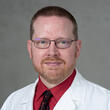Overview
The Kirk Kerkorian School of Medicine at UNLV General Surgery Residency Program is five years in length and stresses all aspects of diagnostic work-up, preoperative preparation, intraoperative judgment, surgical technique, postoperative management, and follow-up care. There are five clinical postgraduate years with the option for one categorical resident per class to participate in a non-clinical research year to further their interest in clinical research methodology, quality improvement projects and clinical trials. This is completed between the second and third post graduate years. The wide variety of clinical problems encountered at our teaching facilities allows each individual an ample opportunity to observe and experience firsthand the complexities of the response of the surgical patient to disease, trauma, and operative intervention. Postgraduate surgical training at the Kirk Kerkorian School of Medicine provides residents with a broad based training in the surgical sciences. The primary teaching hospital of the program is University Medical Center of Southern Nevada (UMC). Other teaching facilities in which the residents rotate include the Veterans Administration Medical Center, the Mike O’Callaghan Military Medical Center, and Sunrise Children’s Hospital.
Contact
1701 W. Charleston Blvd., Suite 490
Las Vegas, NV 89102
Please contact us about questions you may have regarding your application to the program and interview.
Phone: 702-671-2273
What Makes Our Program Unique?
- Access to the newest generation of robotic surgery equipment and training consoles
- Optional dedicated research year between PGY-2 and PGY-3
- Breadth of experience from Las Vegas area surgery centers, private hospitals, VA Medical Center, Mike O’Callaghan Military Medical Center, and the University Medical Center (UMC) that is Nevada’s only level-one trauma center, burn center, and transplant center
- Early operative experience as an intern and junior resident
- Program director is committed to work/life balance for residents
- Respect, trust, autonomy, and teamwork valued among residents and faculty
- Dedicated full-time and community faculty in general surgery and several surgical subspecialties
- Exposure to academic and private practice aspects of general surgery
- Weekly didactics, supervised by faculty surgeons in both the classroom setting and our own surgical simulation lab
Curriculum
Program Leadership
Training Sites
University Medical Center of Southern Nevada (UMC)
UMC is a 564 bed, state-designated Level I Trauma Center for Nevada and the only free-standing trauma center west of the Mississippi. UMC also houses the Children’s Hospital of Nevada and the state's only burn care facility, the Lions Burn Care Center. Residents rotate at UMC for general surgery, surgical oncology, colorectal surgery, cardiothoracic/vascular surgery, transplant surgery, minimally invasive/bariatric surgery, emergency general surgery, trauma surgery, surgical critical care, burn surgery, pediatric surgery, and plastic surgery.
Children’s Hospital of Nevada
Housed within UMC, this is the only hospital in Nevada to offer pediatric burn care and organ transplant services, the only accredited cystic fibrosis center in the state of Nevada, and the only designated Level II Pediatric Trauma Center in Nevada. Residents rotate through this hospital while on the pediatric surgery service, trauma surgery service, and surgical critical care service.
Las Vegas Veterans Administration Medical Center
The $600 million, 1.3 million-square-foot complex opened in August 2012 as the first VA hospital in Southern Nevada and the first VA hospital to be built in the United States since the end of the Gulf War. Residents rotate at the VA during their first, second, and fourth years, gaining experience in a variety of general surgery procedures.
Mike O'Callaghan Military Medical Center
The Mike O'Callaghan Military Medical Center, an Air Force hospital, is located on Nellis Air Force Base and is run by the 99th Medical Group (MDG). MDG is comprised of approximately 1,400 personnel who are dedicated to providing preventive, emergency, and acute care services for approximately 22,000 active-duty members and their dependents. Residents spend two months during their third year rotating with attending Air Force general, trauma/critical care, colorectal, and vascular surgeons.
Sunrise Children's Hospital
Sunrise Children’s Hospital is Nevada’s largest, most comprehensive children’s hospital. Residents spend two months during their fourth year on the pediatric surgery service, with a significant amount of time spent at Sunrise Children’s Hospital.
Resident Life
Why Come to Las Vegas for Residency?
Las Vegas is a very unique town. The city’s rapidly growing local population and high volume of tourists provide a very diverse population. Not only does this enrich your training, it enriches the city’s culture. You may already know about the Strip with its nightlife and beach clubs, but there’s so much more to Las Vegas. There are plenty of shows to keep you, your family, and friends entertained. Top chefs from all around the world have set up shop throughout the city. They’re also likely to be open for business after your shift! When you find the need to burn those calories (as if running around the hospital isn’t enough), there are plenty of places to go hiking! Friends and family often find excuses to come visit you, and entertaining them is easy! If you find the need to get away, the airport is easily accessible, and flights are readily available. However, we can’t forget the space between the Strip and the mountains; there are peaceful residential areas with parks, playgrounds, and recreation centers for those of you raising a family… or even if you’re not raising a family! Either way, we welcome you to our surgery family.
Life After Residency
How To Apply
The General Surgery Residency offers eight first-year positions as a surgical house officer. Three are civilian categorical general surgery positions, two are United States Air Force categorical general surgery positions and three are one-year preliminary positions.
Active Duty Air Force applicants submit an application through the Medical Operational Data System (MODS), organized and conducted by the Joint Service Graduate Medical Education Selection Board (JSGMESB).
All civilian applications are accepted through the Electronic Residency Application Services (ERAS) only (ACGME ID 4403121378), and matched via the National Resident Matching Program.

